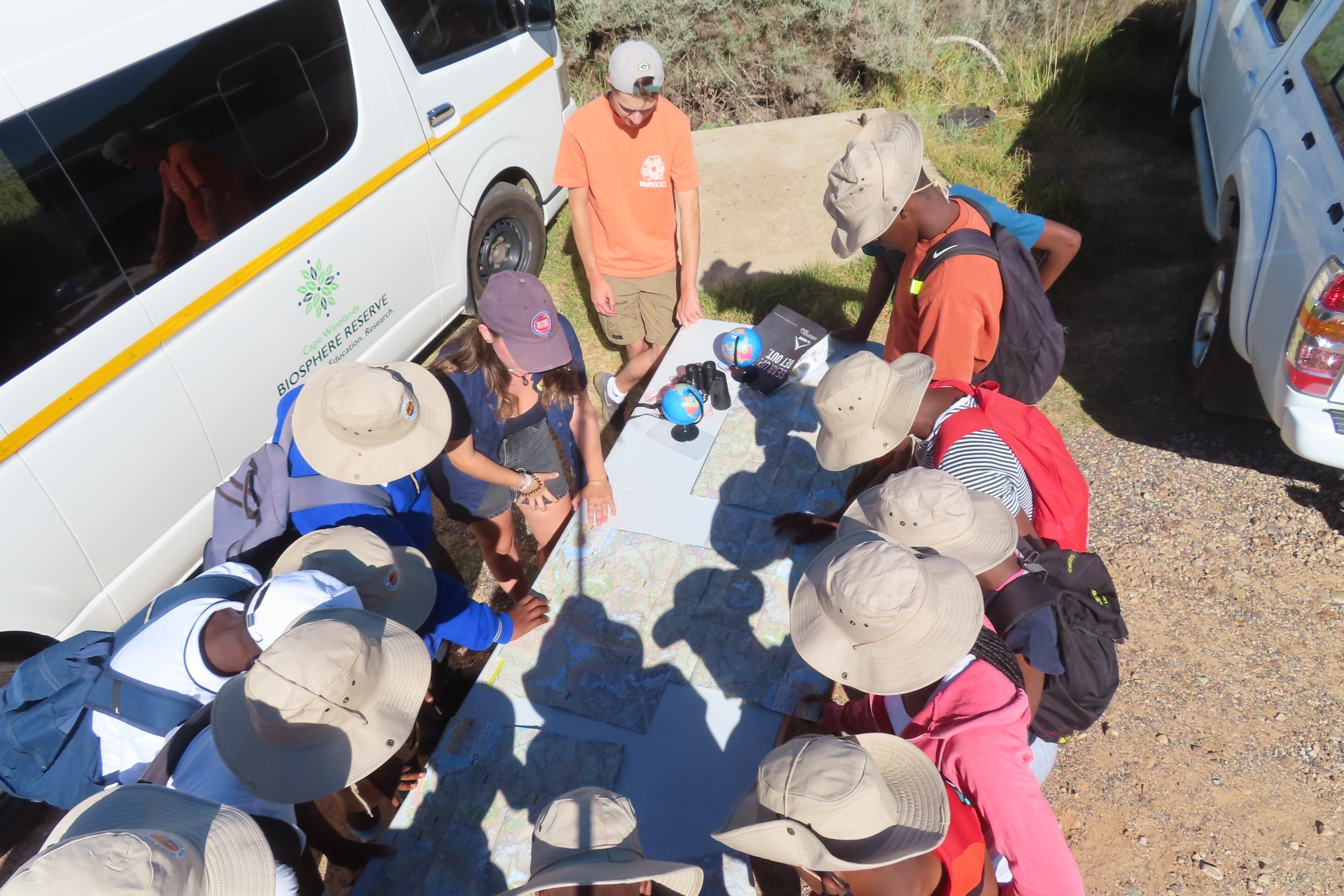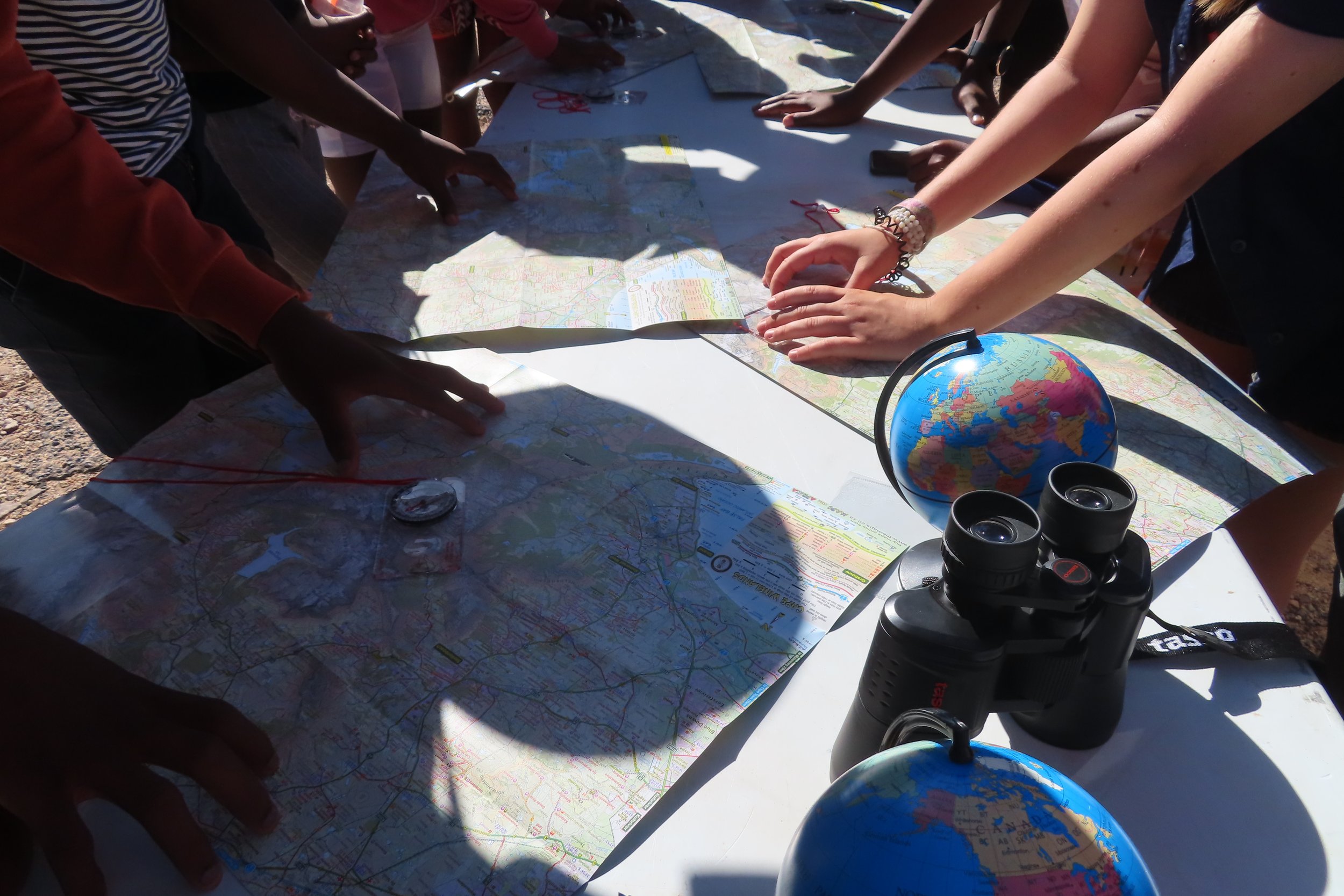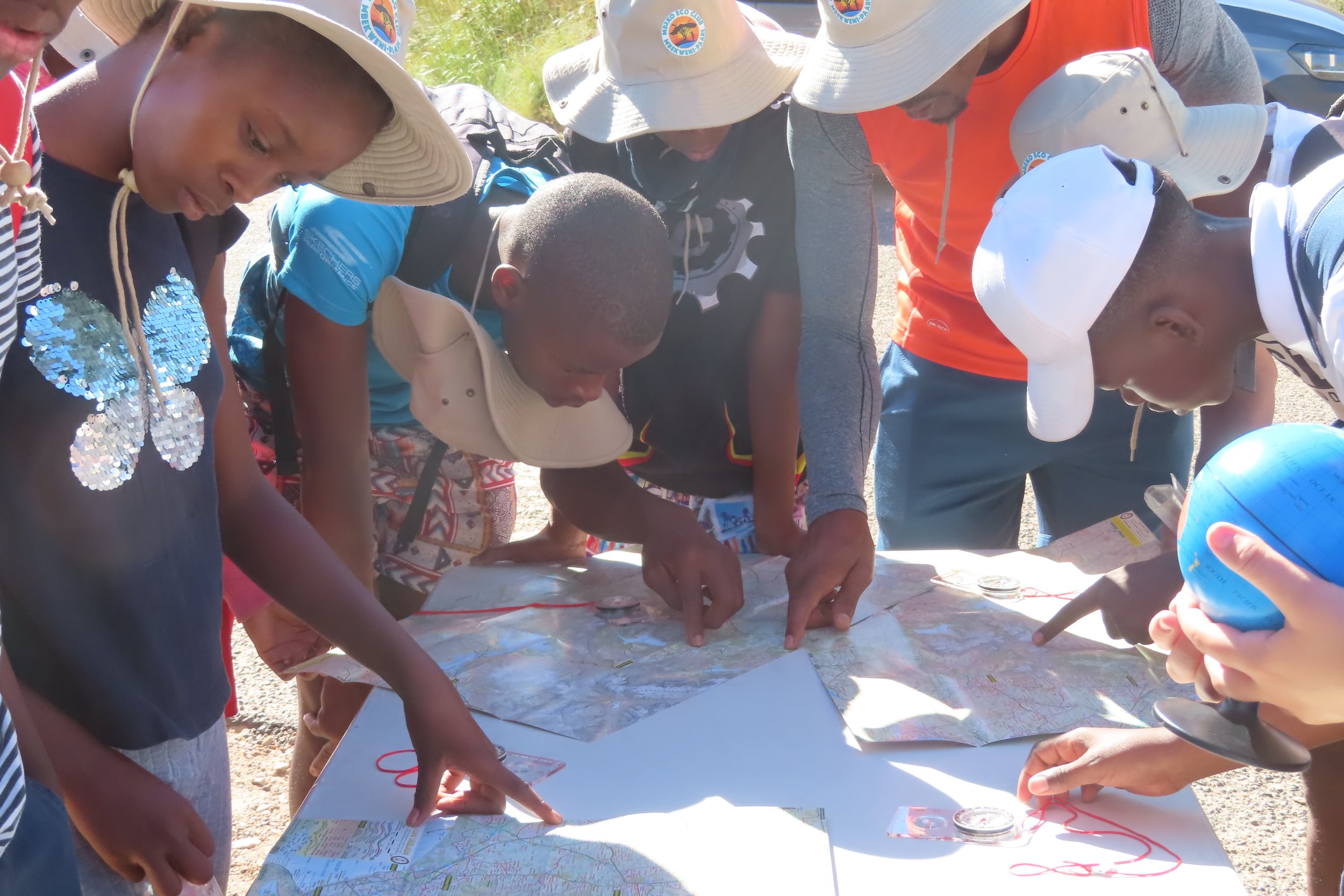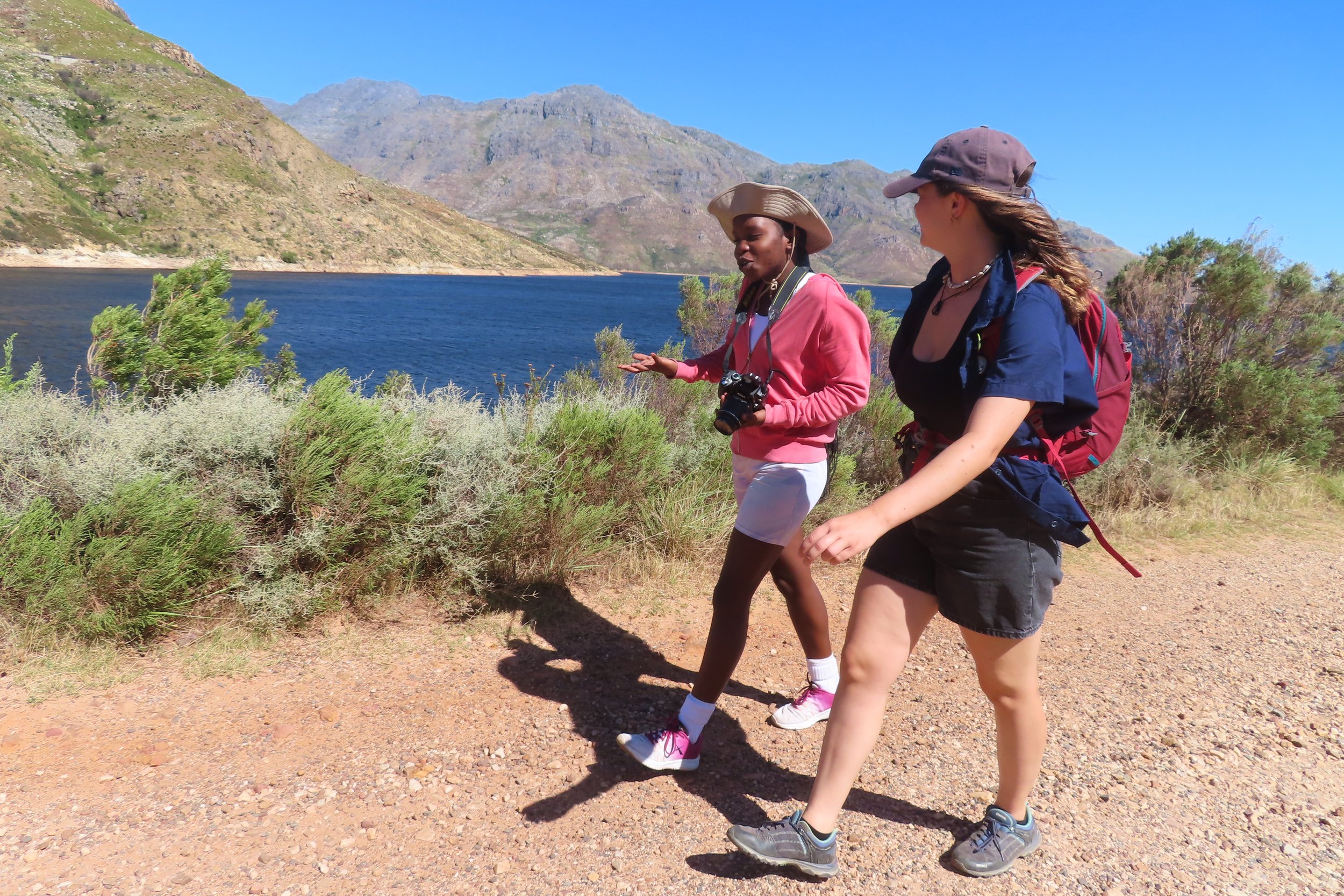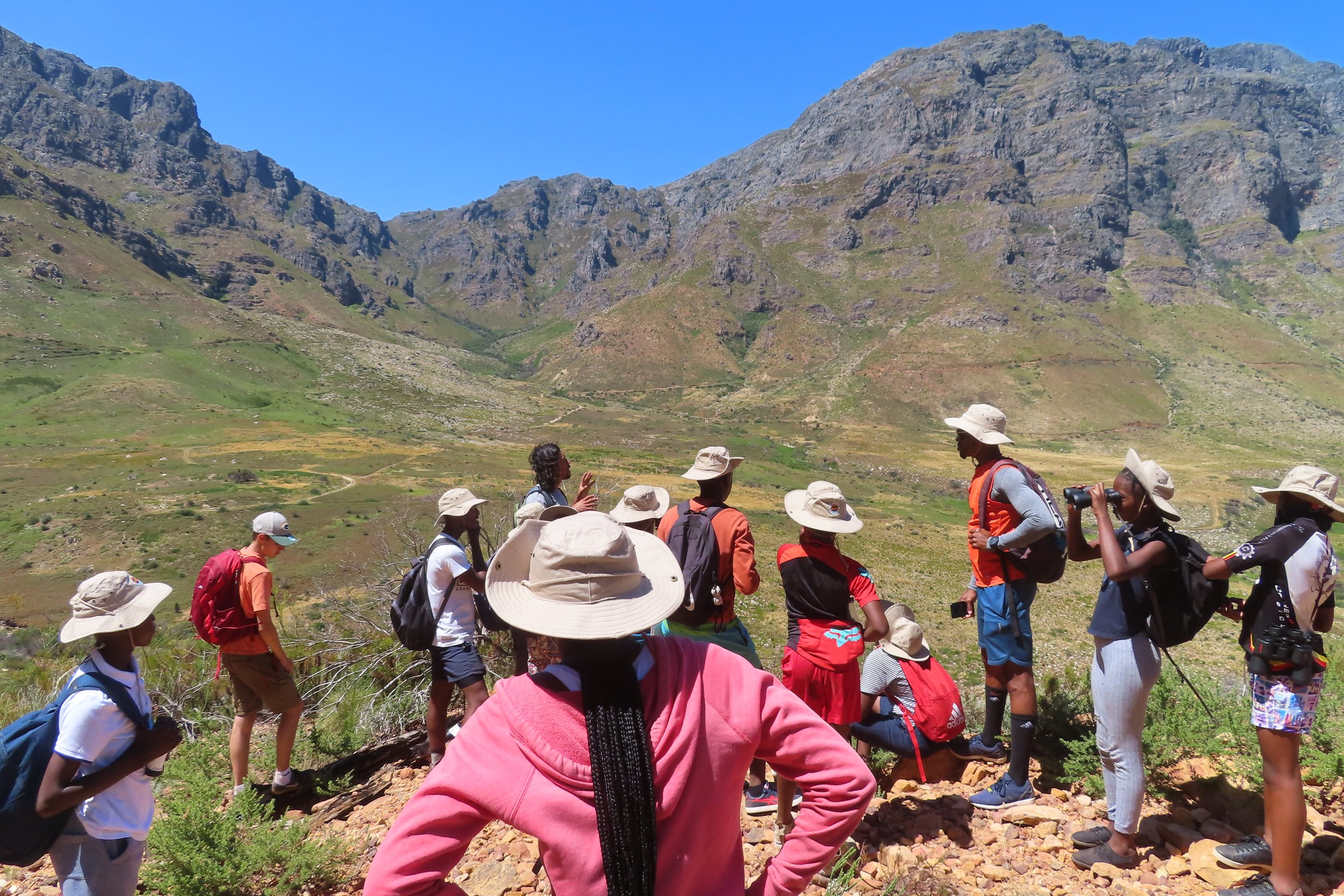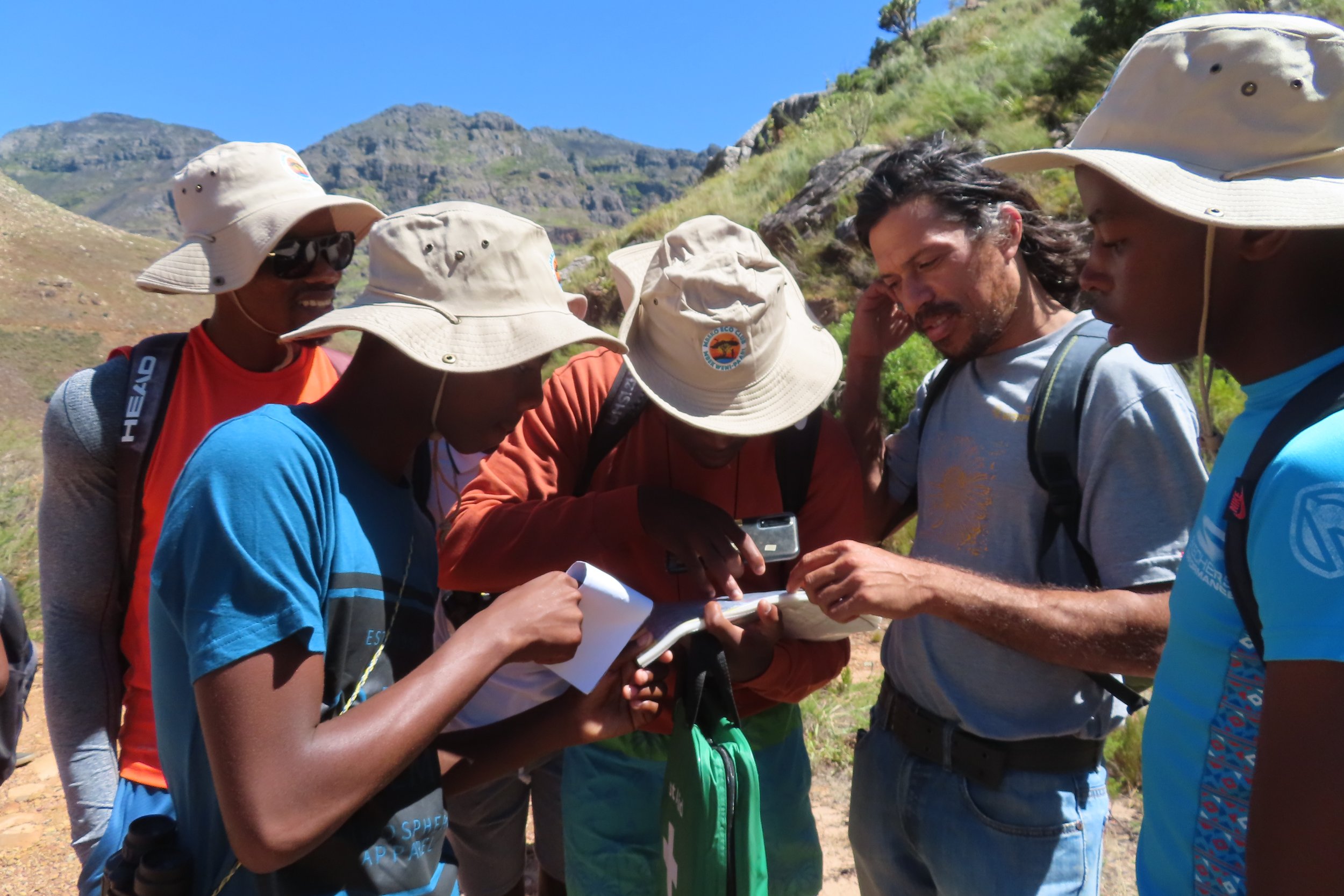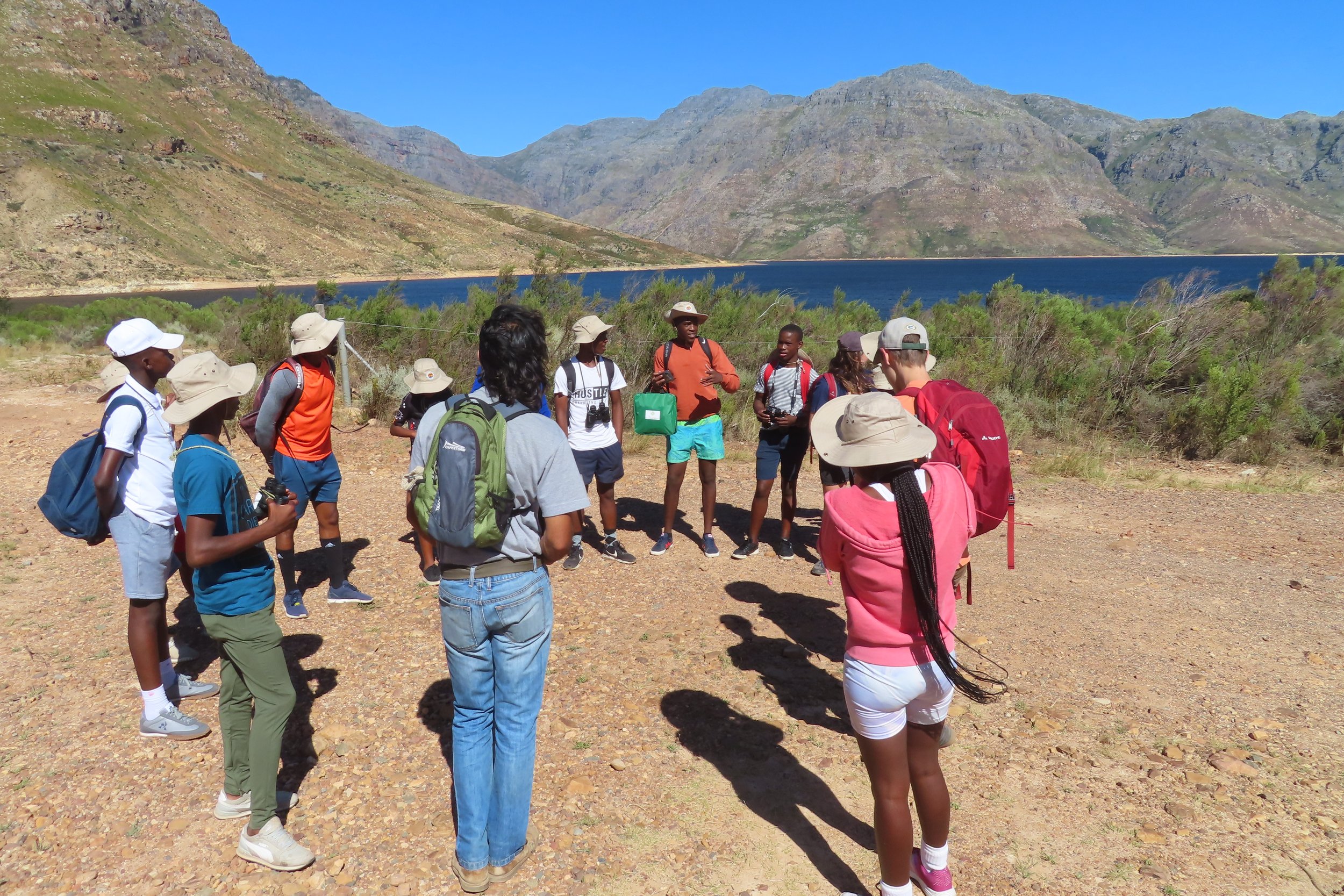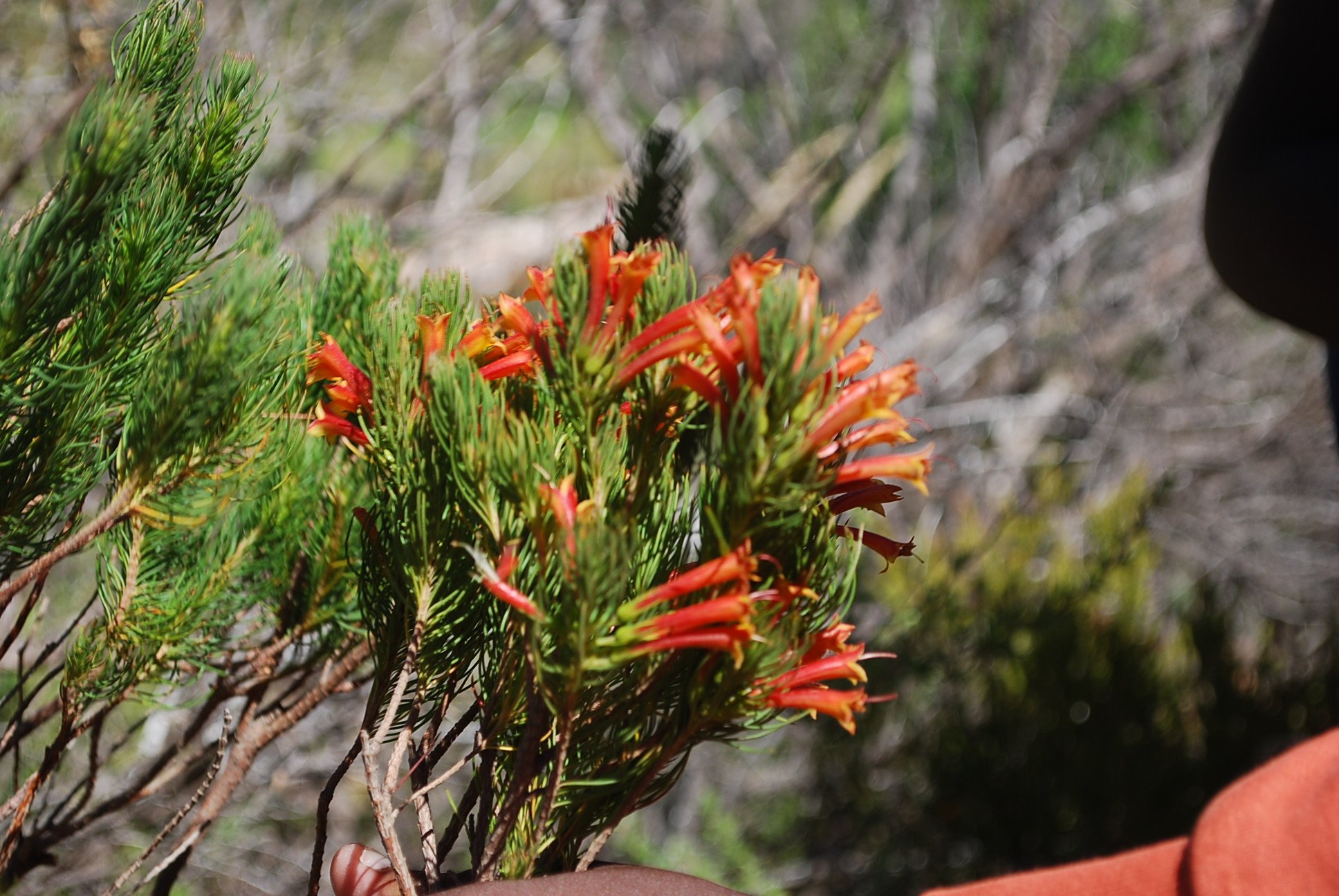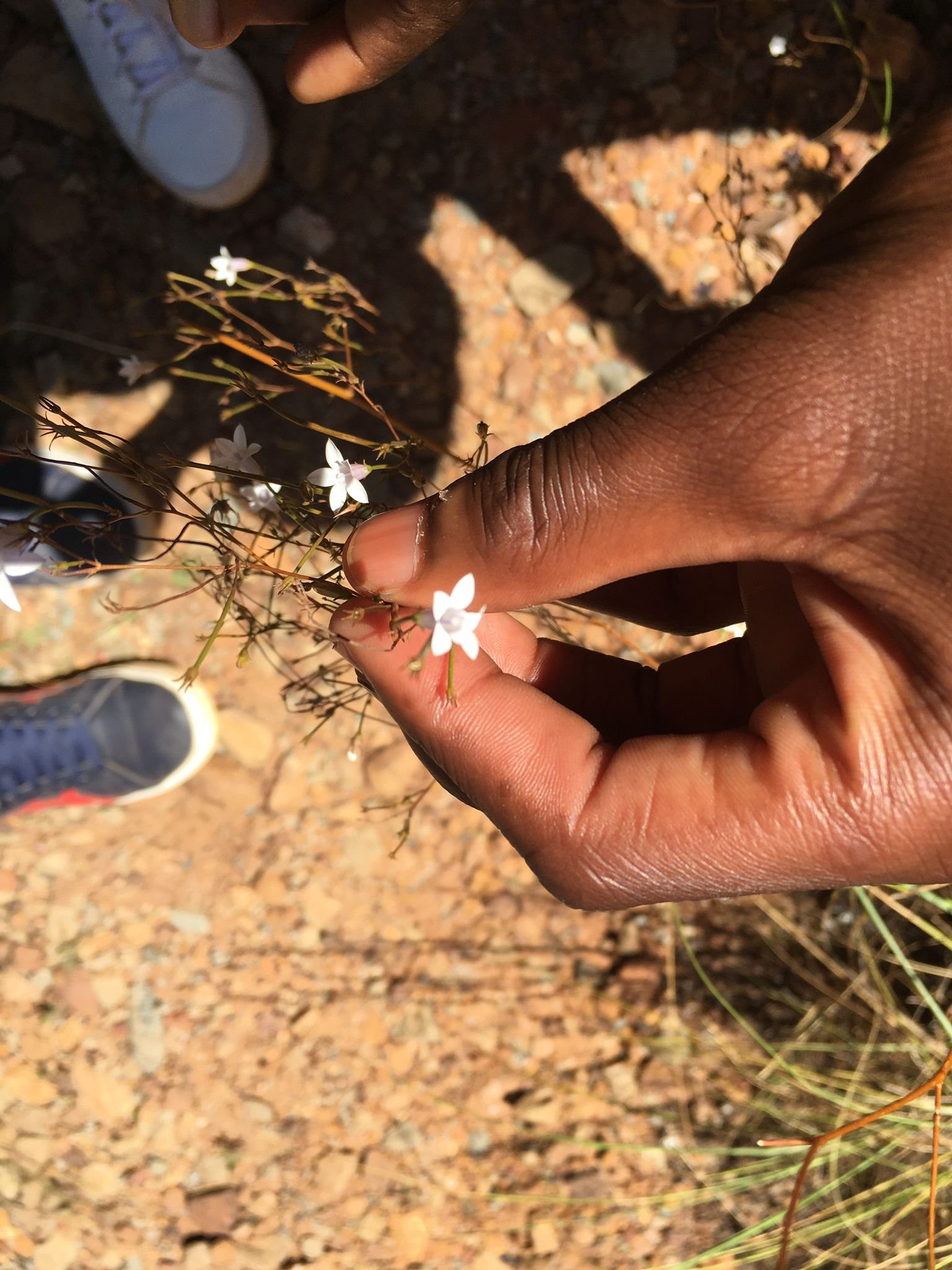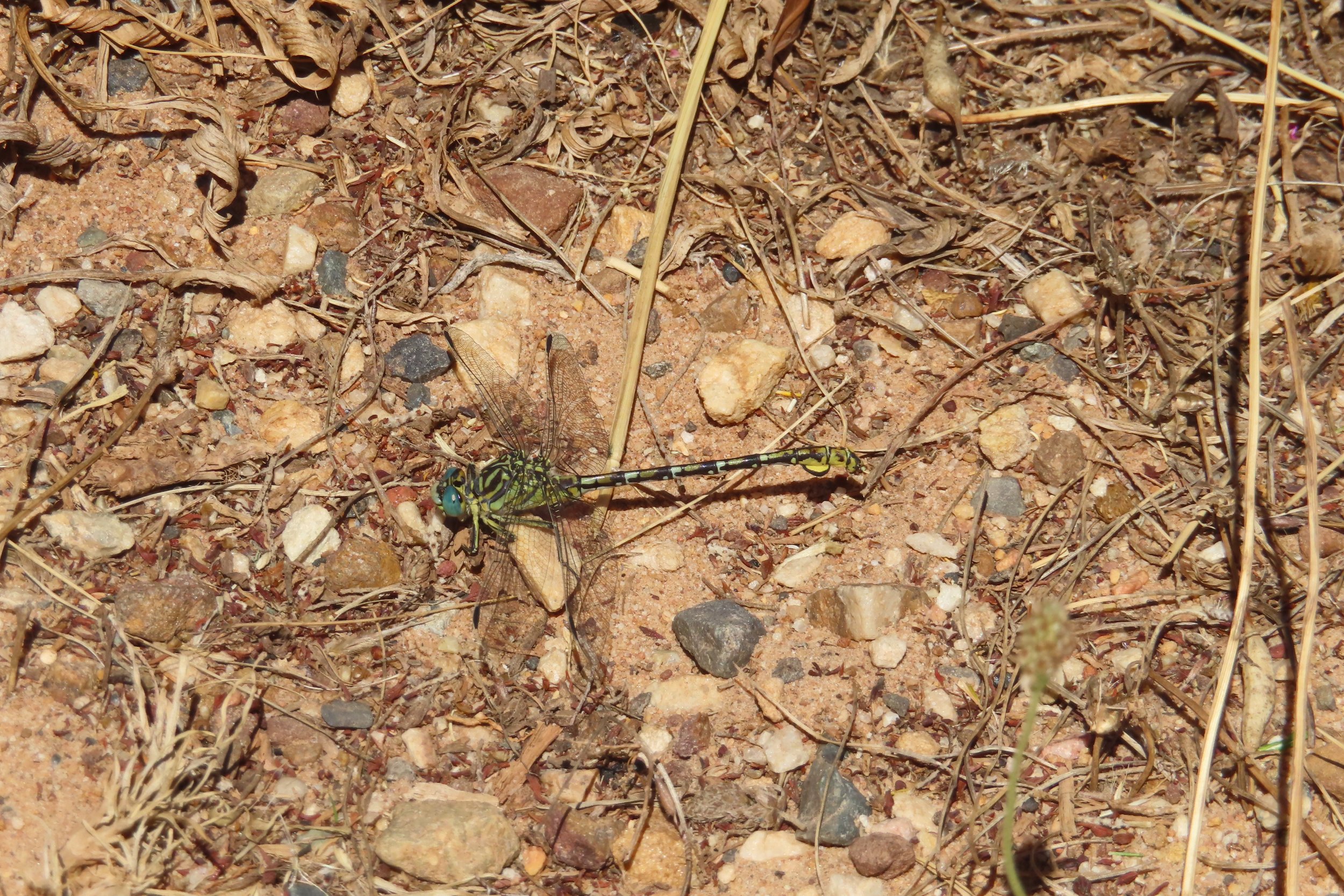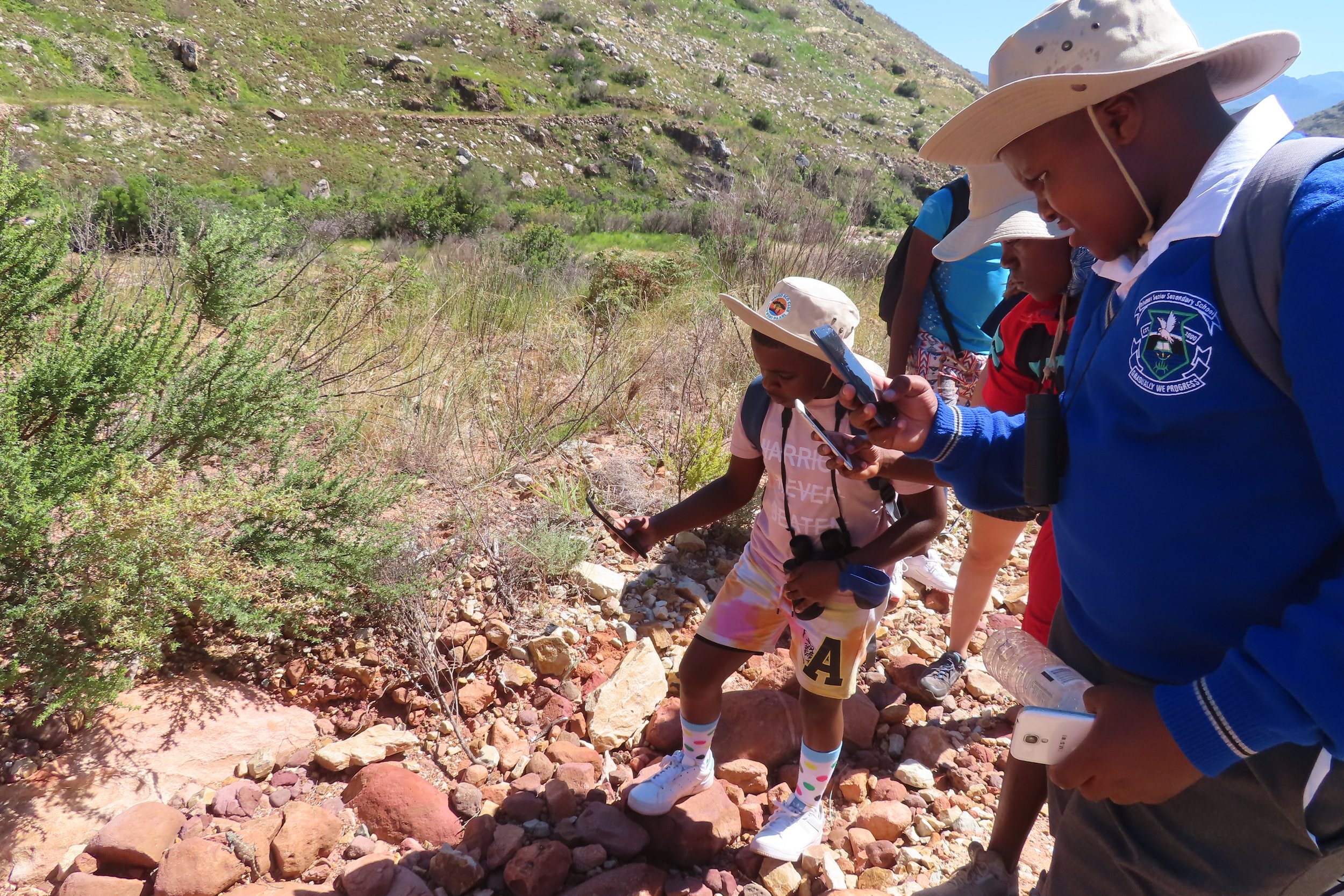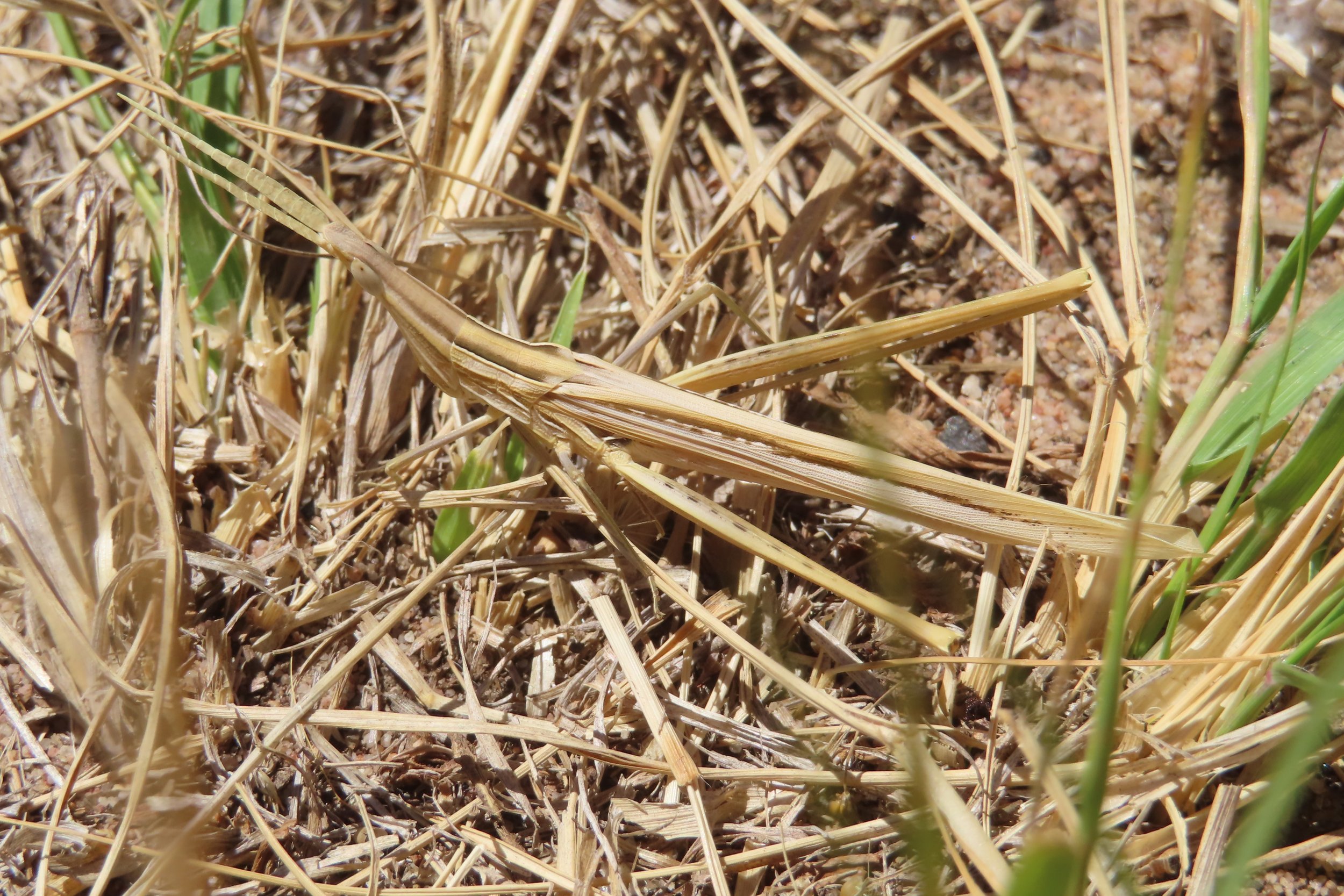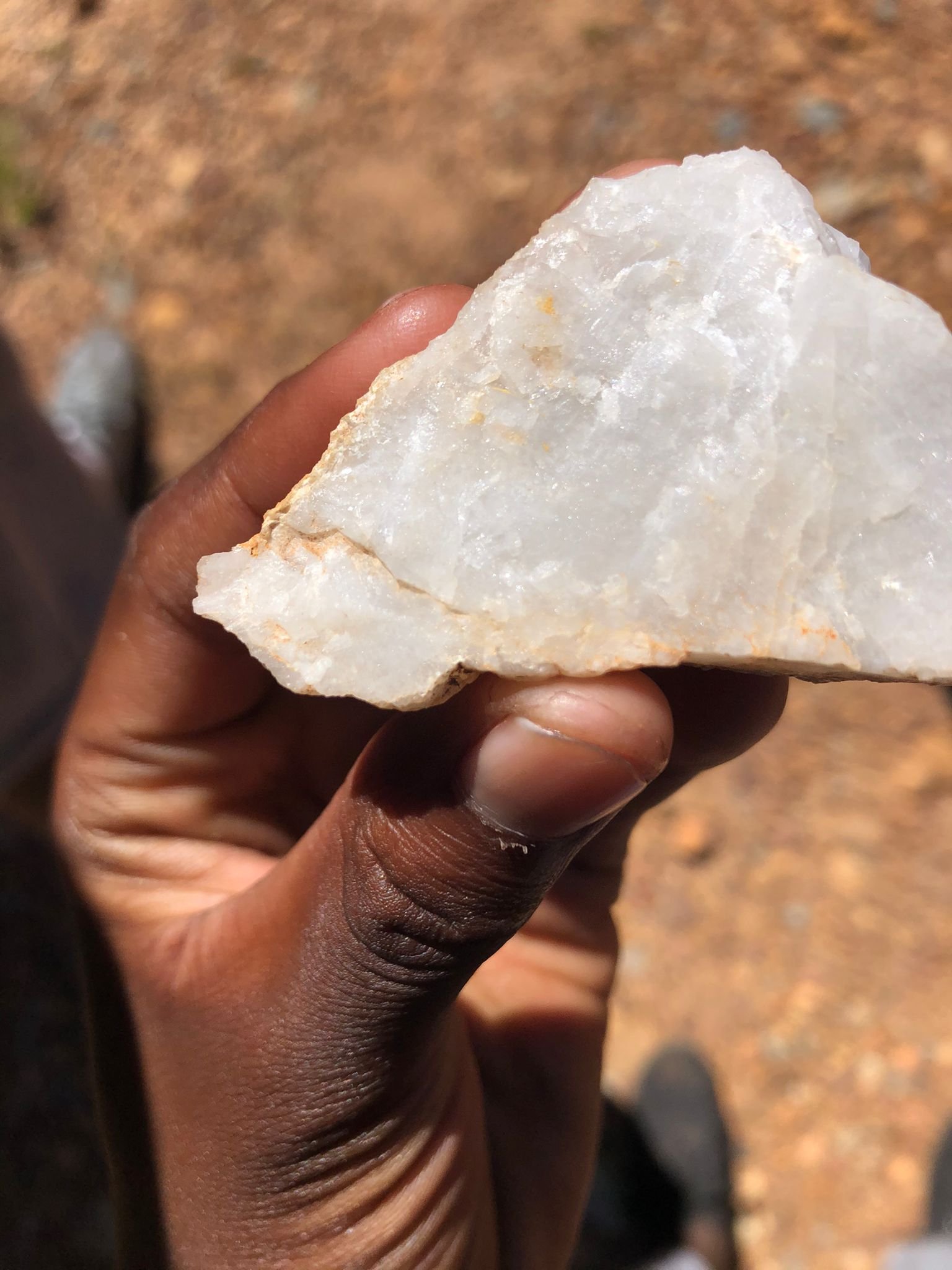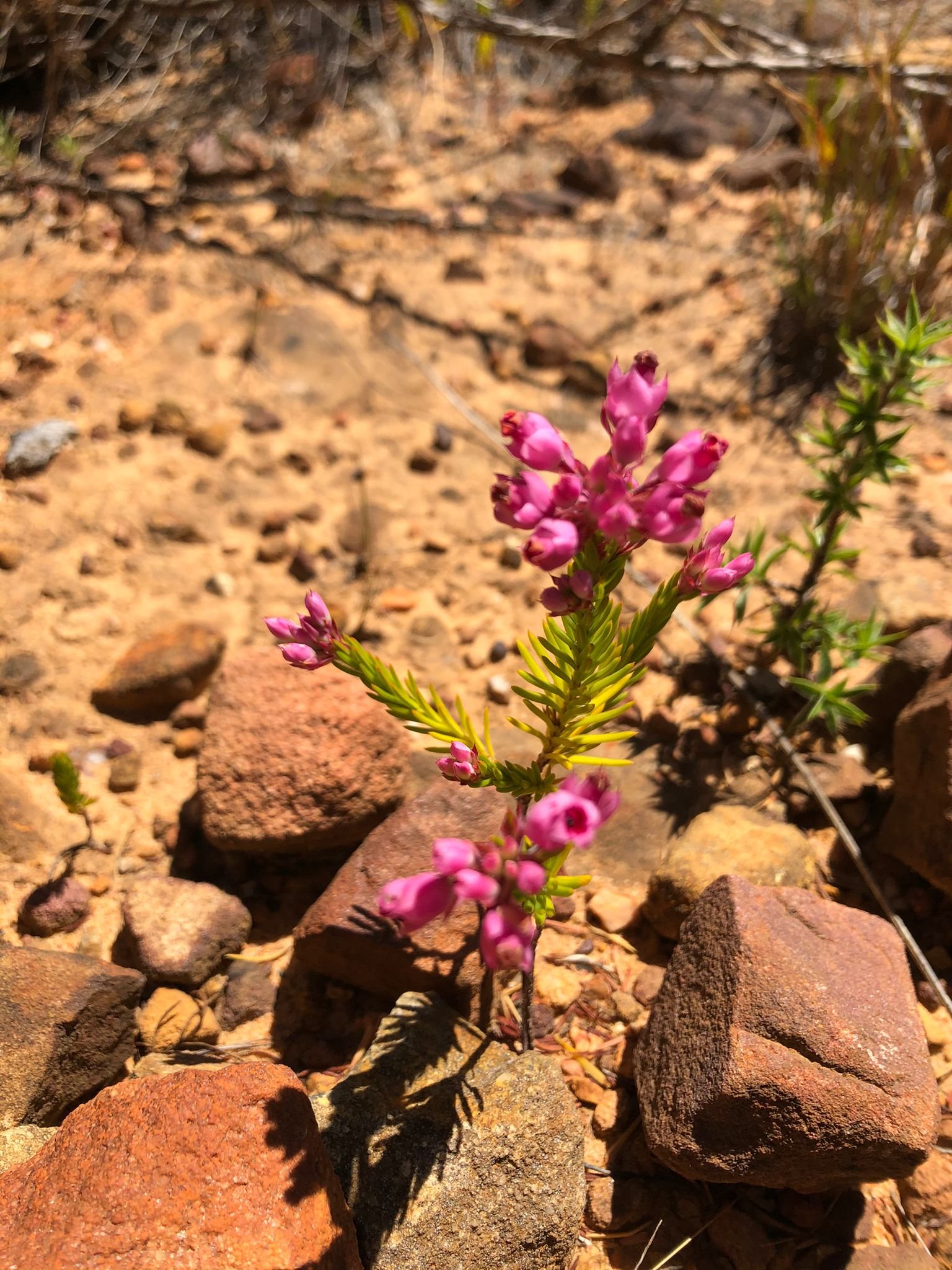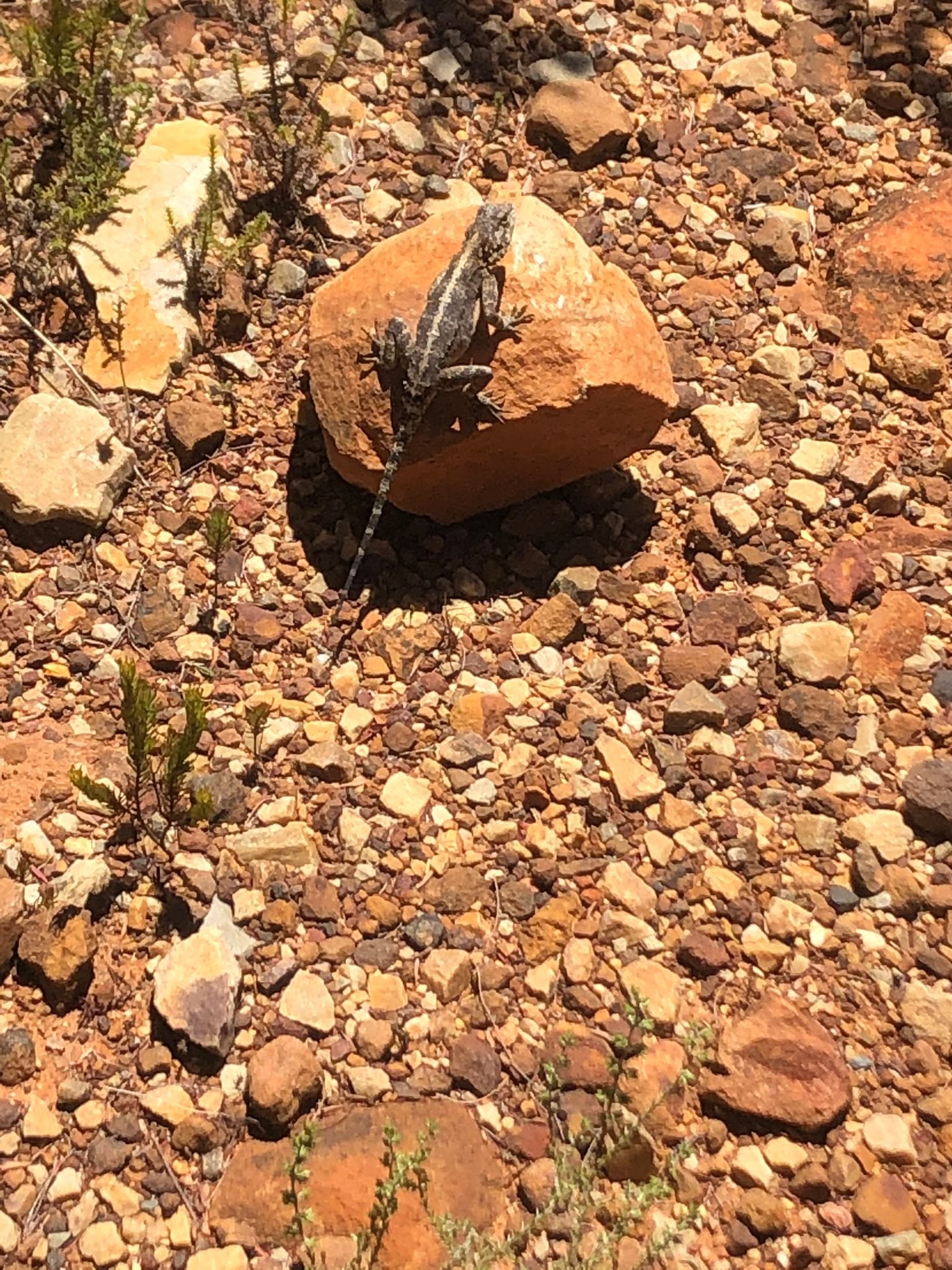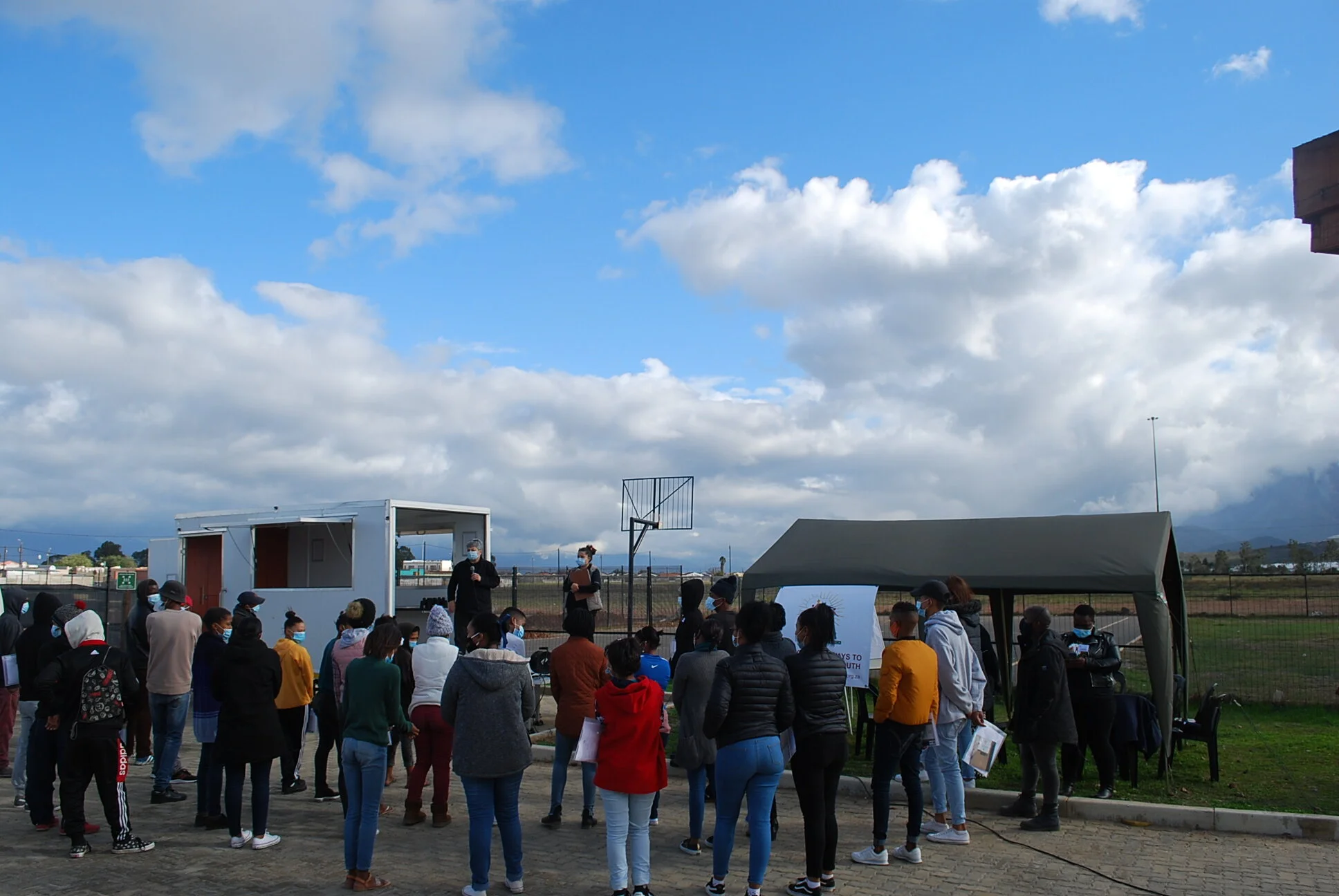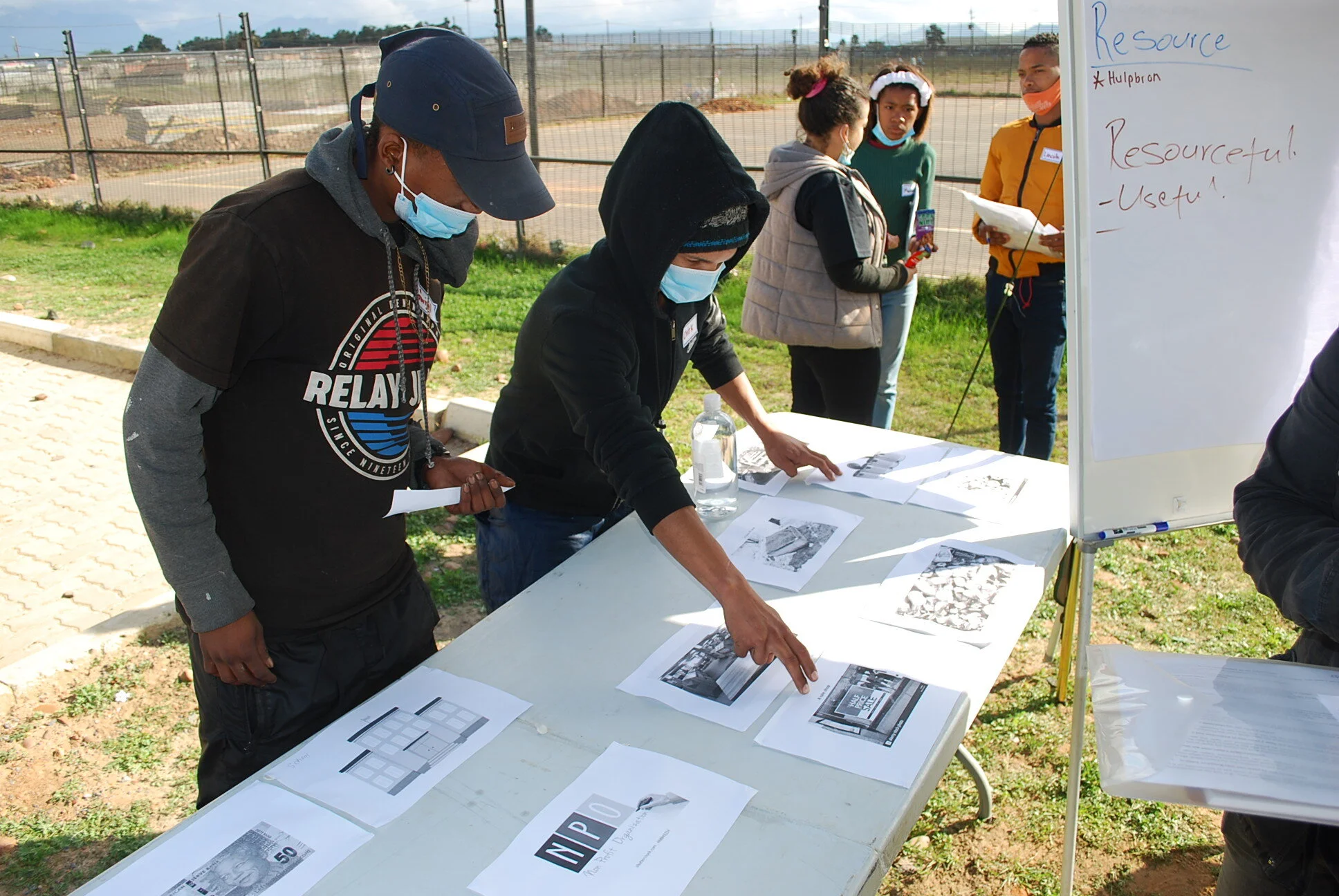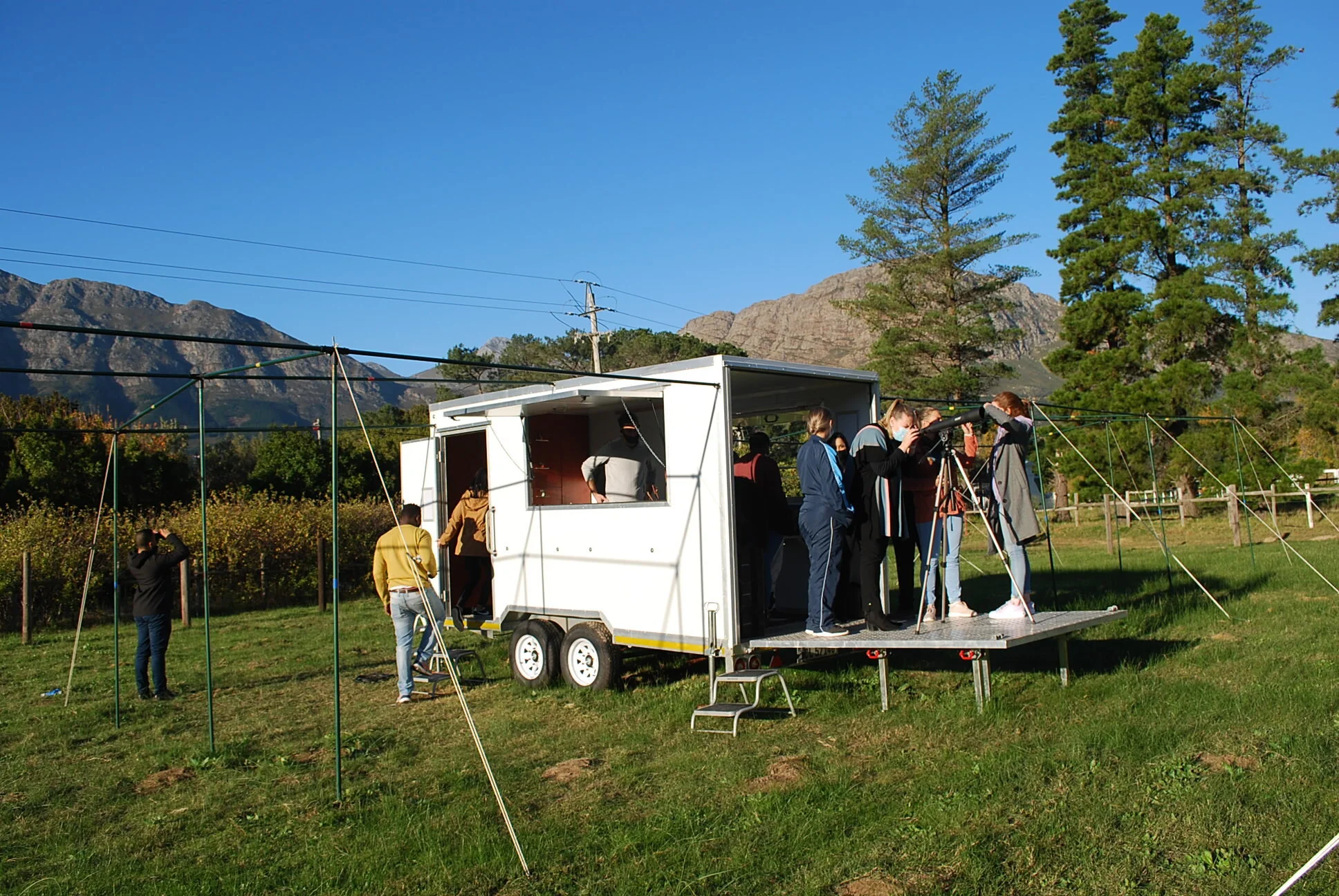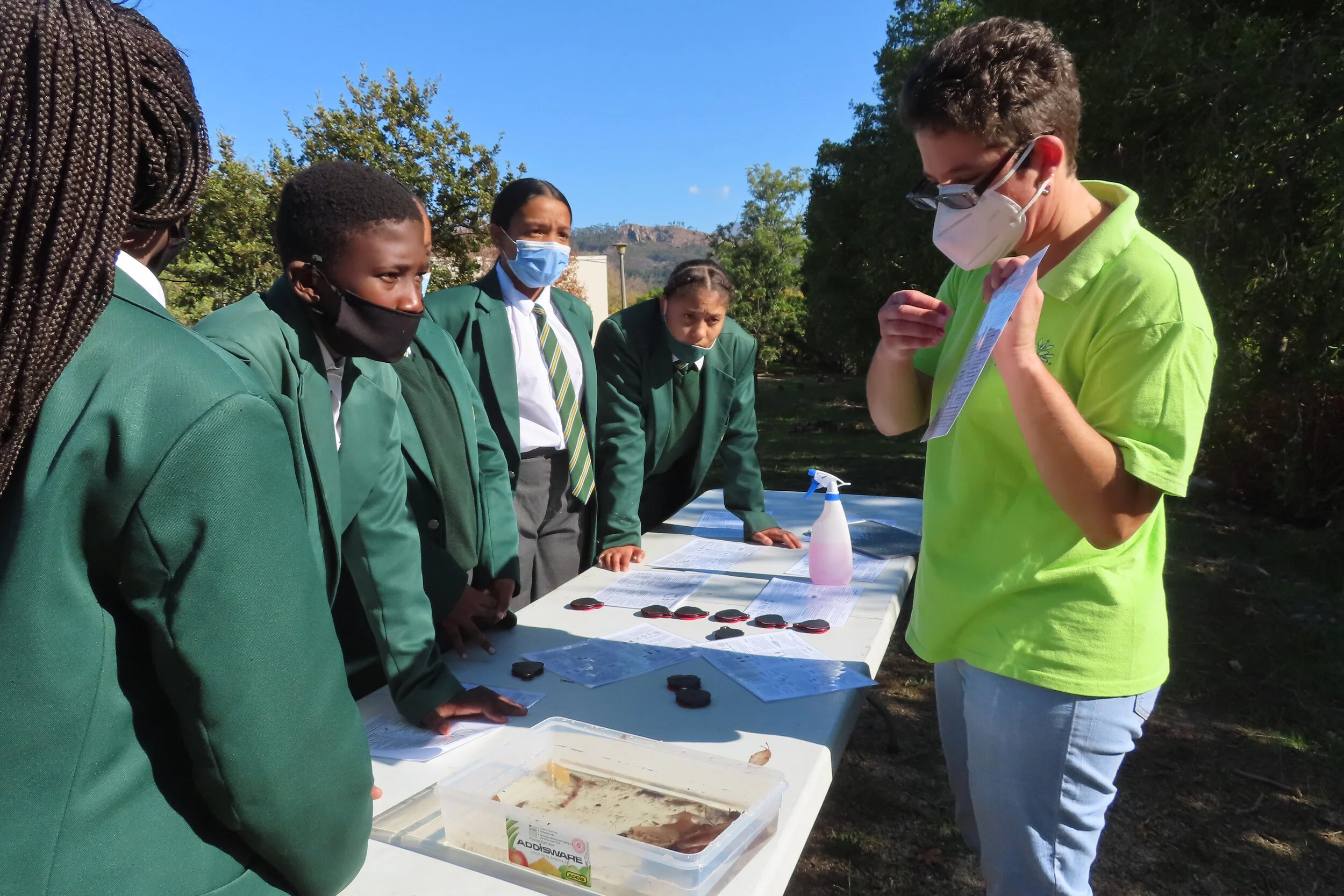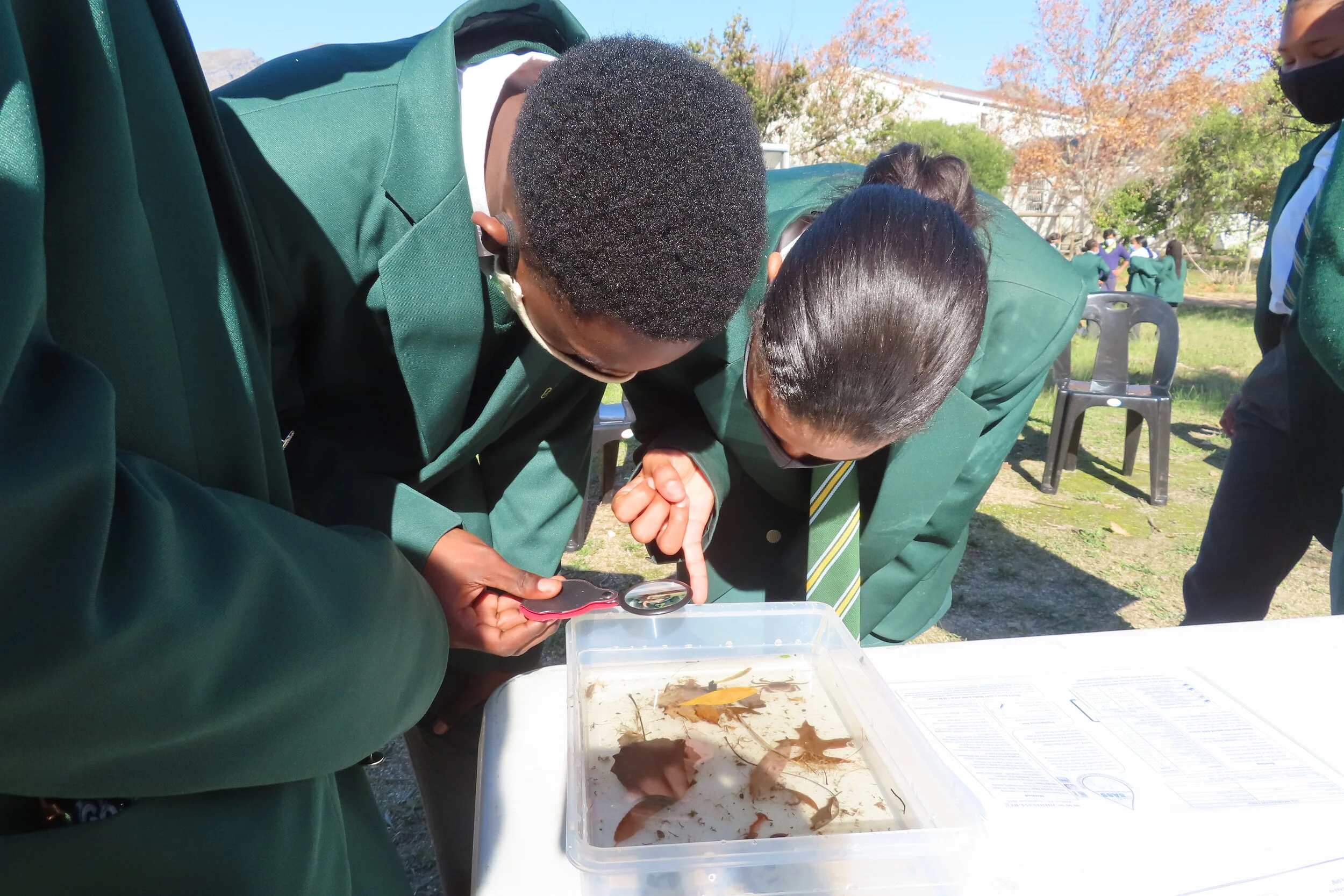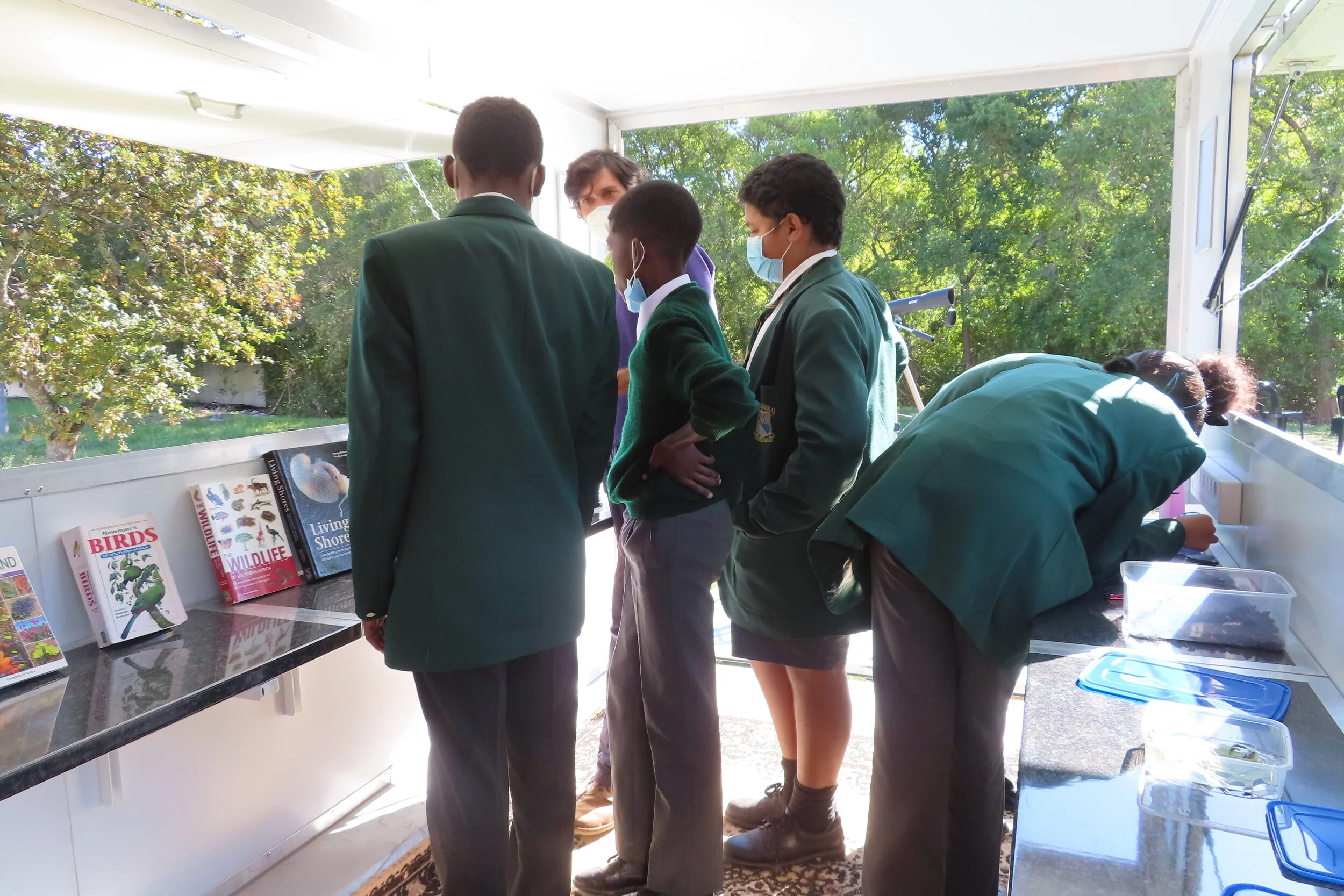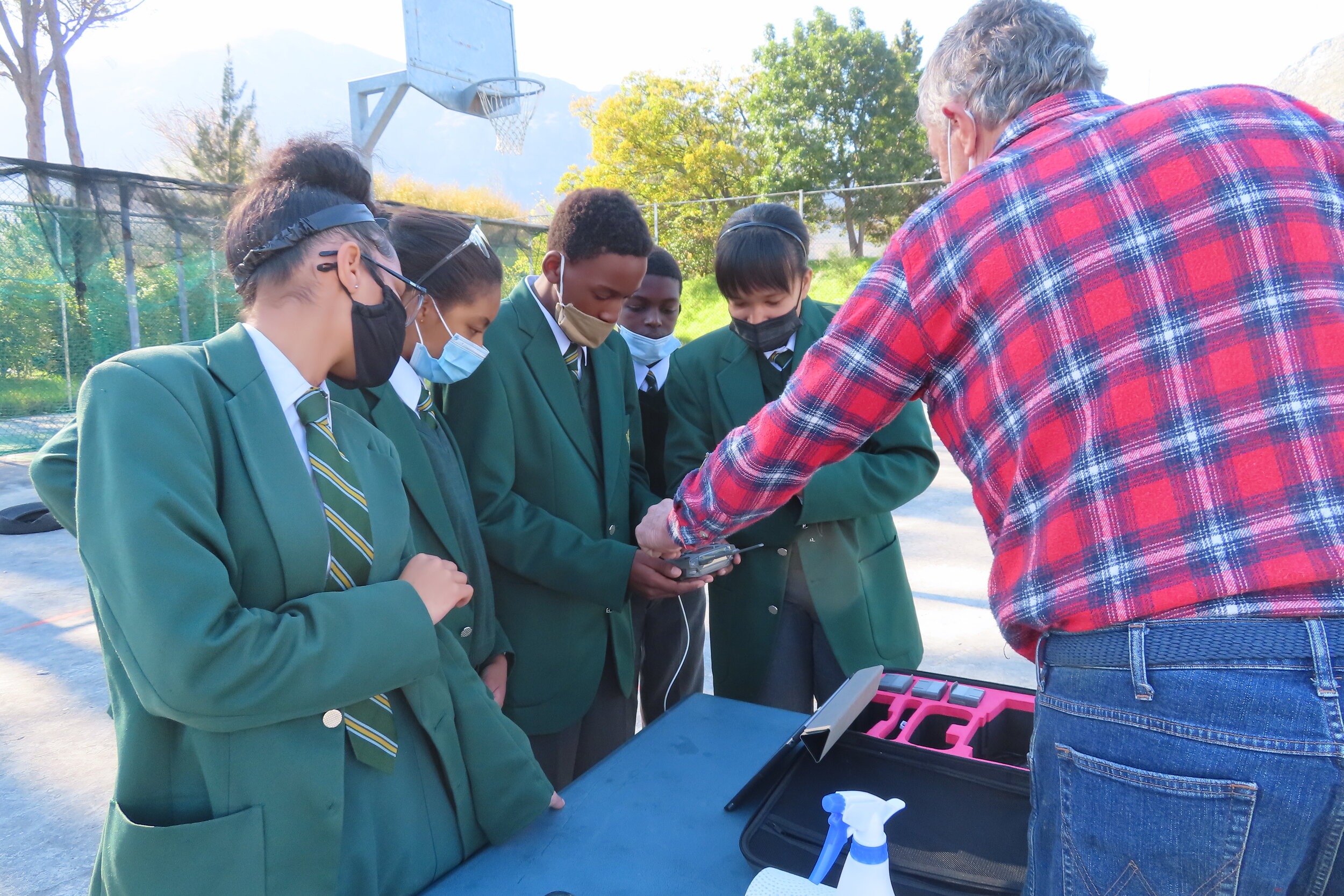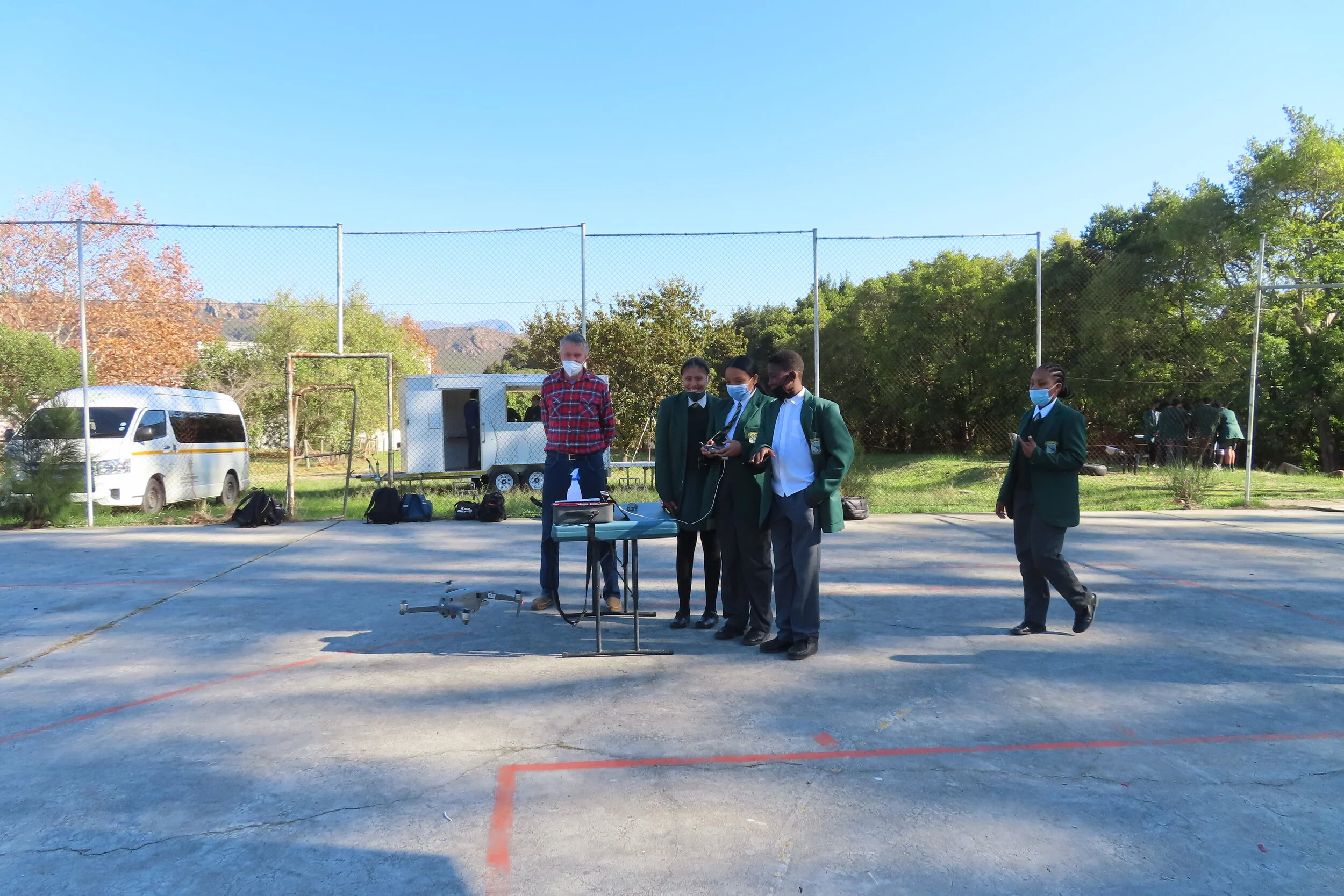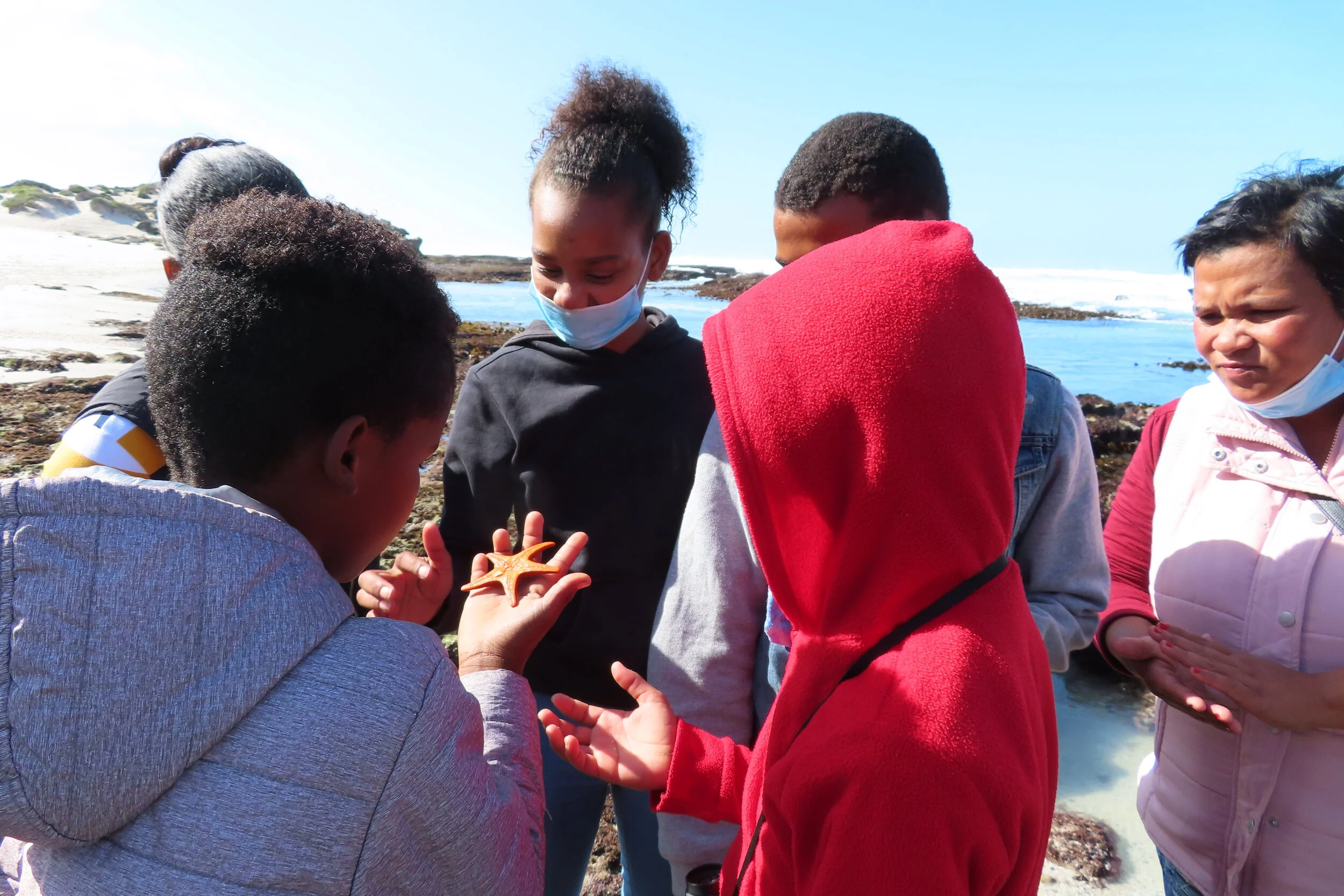During the last week of February, nine team members from the CWBR joined ten from USIKO Stellenbosch at De Hoop Nature Reserve in a four-day team building workshop. USIKO have partnered up with the CWBR on the Science Bus Project and will use the trailer as a tool to facilitate youth empowerment and outdoor education workshops. Therefore, this trip was organised to gain better insight into each organisation, exchange knowledge, brainstorm ideas for workshop content and ultimately strengthen bonds between the two organisations.
The CWBR, together with De Hoop Collection guide Lizo Msululu [graduate of the FGASA & Life Skills Course run through the CWBR], guided the team on an exploration of the Rocky Shores.
Lizo presented a captivating, guided tour of the Rocky Shore, bringing the seemingly stagnant pools to life. Pointing out several threatened species, how certain species have adapted to this often unfavorable, harsh environment and explaining how the iconic white sand dunes form and reform over time. Although no whales were spotted during the trip – for which De Hoop is famed for- the team was treated to few dolphins playing in the waves below.
Inland we were introduced and afforded the opportunity to walk along the RAMSAR protected Vlei, its significance is that thousands of birds species. Such as flamingos and pelicans visit this site yearly, having made seasonal stops at other such wetlands all over the world.
The experience left all participants in awe of the incredible wildlife and beauty of the marine reserve and inland wildlife. Highlighting the importance of a good guide and hands-on guiding experience to excite, spark curiosity and create a lasting memory to encourage further knowledge and skills seeking.
L Willemse, who mentors and facilitates the CWBR run FGASA course spent the afternoon with the group spurring stimulating conversation and discussion about motivation, personal development, and how to transfer skills and share knowledge. More importunately, asking ‘who are we’ and ‘where are we going’, a question not so often asked by us as individuals as we get caught up in the mere doing of daily life.
The day ended with a short presentation given by L De Jager on her experience working with individuals with mental and physical disabilities through Care Career Connections (CCC), an organisation dedicated to equipping those with disabilities in the Cape Winelands area with the skills, training and support necessary to secure work in a profession the individual enjoys. This amazing organisation was created and run by her mother, Ingrid De Jager. Her talk sparked interesting discussions surrounding the place of those with disabilities in society and the need for society to change in ways that are inclusive of disabilities.
On the third day the CWBR was given first-hand insight into the youth empowerment workshops run by USIKO when they demonstrated what a typical workshop would entail and look like. With focus on the four elements earth, air, water, fire, and time spent in nature individually to reflect on questions posed throughout the workshop. The CWBR’s participation in the activities gave insight to what USIKO offer to youth that often are misled and have few positive role models. An opportunity to be away from their norm and come out with a fresh perspective of who they are, where they are going, and possible opportunities. As well as the positive effect of stillness and quiet that comes with spending time in the natural environment, which is often an experience never had by many youths.
Since the development of the CWBR Science Bus Project in 2018, in collaboration with Athénée Action Humanitaire, the concept of the Science Bus has changed significantly over time. Originally, it aimed to educate disadvantaged youth living in remote local communities lacking access to sufficient resources and education, in STEM subjects. Since then, a whole global pandemic has hit and the way education and knowledge is shared with youth has had to change. The concept of the Science Bus has now evolved into a mobile educational space used to inform, inspire, and excite individuals and communities through hands-on learning experiences and empower them to navigate through the 21st century. The trailer is a highly multi-functional tool and along with serving and educational purpose will also be used to host CWBR-based events and capacitate income generating activities for the CWBR to become independent and self-sustainable.
We thoroughly enjoyed our time with USIKO Stellenbosch and are excited to be working alongside them in making the Science Bus Project a reality. Stay tuned and follow us on this journey to creating better opportunities for youth to learn and be empowered.


